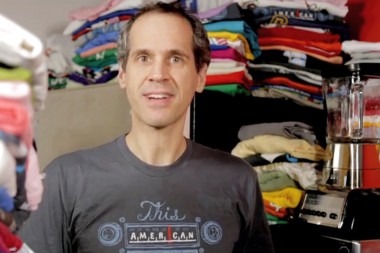Tag: Radio programs
Salt Lake City’s KCPW cites program costs, duplication in canceling NPR programs
Salt Lake City pubcaster Wasatch Public Media, licensee of KCPW-FM, will drop all NPR programs June 24, a schedule change intended to ...Yore departs Marketplace as APM pares executive ranks
J.J. Yore, a veteran producer credited as a creator of the public radio show Marketplace, was one of three senior executives riffed June 17 ...Fresh Air returning to daytime in Mississippi
Fresh Air will air during daytime hours on MPB’s Think Radio network for the first time since 2010, when the network’s then–Executive Director Judith ...Ombud answers watchdog’s concerns about public radio’s America Abroad
The ombudsman for America Abroad, a monthly public radio show covering foreign policy and international affairs, has responded to criticism from the media watchdog ...APM series examines exoneration in the U.S.
“After Innocence: Exoneration in America” provides an in-depth look at wrongful imprisonment in the U.S.Listening to Boston news radio spiked during week of bombings, analysis shows
Boston’s news radio stations saw sharp increases in listening in the wake of the Boston Marathon bombings April 15, a finding highlighted ...On hunt for more midday carriage, APM and BBC alter Newshour clock
Beginning July 1, the BBC’s Newshour will alter its show clock, ceding 4.5 additional minutes from its newscast for local cutaways. The ...Volunteers take back Radio Catskill
WJFF Radio Catskill runs on hydroelectric power and the passion of its volunteers, who recently rallied to force a change in leadership.Stations continue StateImpact without NPR
NPR provided training and support to 17 participating stations, but has dropped plans to expand StateImpact to all 50 states.With a $60K grant, Futuro Media Group asks: “News or Noise?”
Using a $60,000 grant from the Robert R. McCormick Foundation, the Futuro Media Group has added a segment to its NPR-distributed program ...Left, Right & Center host launches new KCRW podcast
Matt Miller, host of KCRW's weekly news-analysis show Left, Right & Center in Santa Monica, now also hosts the biweekly This . ...NYPR looking to boost coverage for classical station
New York Public Radio has applied to the FCC to acquire 90.3 FM in Ossining, N.Y., from community licensee Hudson Valley Community ...Planet Money crowdfunder soars, PRI campaign falls short of goal
Two of public radio’s three biggest distributors launched major crowdfunding experiments in the past month, with wildly different results.WFMT unveils new streaming archive of Exploring Music
The WFMT Radio Network has unveiled a premium subscription service that provides access to hundreds of hours of archived programs from Exploring Music ...Audio diarists share new stories in Teenage Diaries Revisited
Beginning May 6 on NPR's All Things Considered, listeners will hear five voices from the past that may have a familiar ring. They’re a ...







